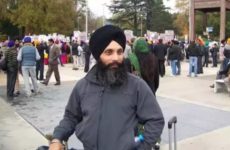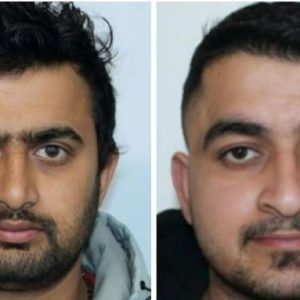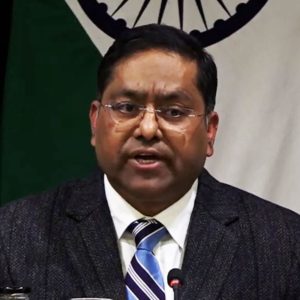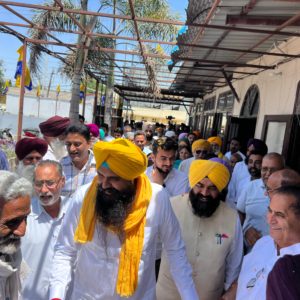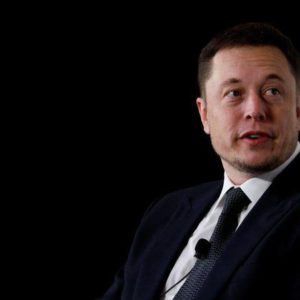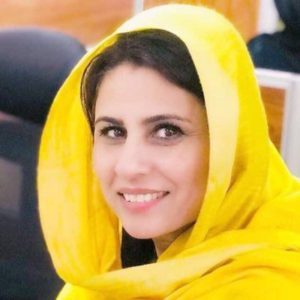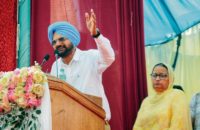Tokyo, Prime Minister Narendra Modi and his Japanese counterpart Shinzo Abe reportedly agreed to expand the bilateral cooperation between two nations in various sectors with Tokyo on Monday committing to double its direct investment in India from $2 billion last year to 3.5 trillion yen in next five years.
Ministry of External Affairs spokesperson Syed Akbaruddin tweeted that under India–Japan Investment Promotion Partnership deal, Tokyo has agreed to make 3.5 trillion yen of public and private investment in India in next 5 year period.
Japan has agreed to give 3.5 trillion yen to India over five years to finance projects including infrastructure and building of smart cities, news agency PTI also reported. “Japan has agreed to provide India financial, technical and operational support to introduce Shinkansen system,” the tweet from the MEA official said.
Besides, the two nations have affirmed the importance of elimination of terrorist safe havens and infrastructure, he also tweeted.
The MEA spokesperson tweeted that India and Japan will substantially increase the number of exchange students between them to enhance Japanese language education in India.
“Japan has agreed to remove six of India’s space and defence-related entities from Japan’s Foreign End User List,” the MEA officials tweeted.
Though there will be no official deal on nuclear energy, negotiations between the two nations will continue in future, sources said. Interestingly, Japan has expresses readiness to provide financial, technical and operational support to introduce bullet trains in India, the news agency PTI said.
PM Modi was earlier accorded a ceremonial welcome here on the third day of his five-day visit to Japan. Japanese Prime Minister Shinzo Abe formally welcomed Modi at the Akasaka Palace, one of the two state guest houses in Tokyo. A guard of honour was presented to the Indian leader.
Following the ceremony, summit-level talks both in restricted format and delegation level between Modi and Abe were held. The two leaders, who share cordial relations, explored ways to take the Strategic and Global Partnership forward during the crucial talks.
As the meeting began, PM Modi is believed to have told Abe that Japan has helped modernise India’s infrastructure and pressed on more fruitful bilateral ties for generations to come.
“No country has done more for modernizing India’s infrastructure than Japan,” Ministry of External Affairs spokesperson Syed Akbaruddin cited Modi as telling Abe.
Both countries also agreed to “elevate relationship to next level”, tweeted Akbaruddin. India and Japan also discussed “investment promotion partnership”, he said.
Earlier this morning, Prime Minister Modi addressed a gathering of top buiness leaders from Japan and invited them to join India’s developmental efforts with a promise of non-discriminatory and speedy clearances and announced setting up of a Special Management Team under PMO to facilitate business from Japan.
Addressing top business leaders of Japan and India here, Modi flagged the recent decisions to liberalise FDI policy in the railways, defence and insurance and said rules and laws are being changed in India which would show results in the near future.
Modi, who has enjoyed immense reputation in Japan as then Gujarat Chief Minister in terms of ensuring the state’s progress, said India wants to emulate Japan in terms of quality, zero defect and delivery systems while carrying out skill development.
Modi has a substantive agenda during the trip which he hopes will “write a new chapter” in bilateral ties and take the Strategic and Global Partnership to a higher level.
Cooperation in the fields of defence, civil nuclear, infrastructure development and rare earth material is expected to top the agenda of the discussions. Some agreements, including in defence and civil nuclear sectors, are expected to be signed. Among the agreements to be signed is one on joint production of rare earth materials.
“I am keenly looking forward to my visit to Japan at the invitation of my good friend, Prime Minister Shinzo Abe, for the annual summit between India and Japan,” Modi had said in his pre-departure statement.
Noting that this will be his first bilateral visit outside the immediate neighbourhood as Prime Minister, he said it underlines “the high priority” that Japan receives in India’s foreign and economic policies.
During his two-day stay in Kyoto, Modi witnessed signing of a pact under which his constituency Varanasi will be developed as a ‘smart city’ in partnership with the Japanese
city, which is a confluence of heritage and modernity.
Abe had specially come to Kyoto from Tokyo to meet Modi. The Japanese Prime Minister rarely greet a foreign leader outside the national capital. On the second day of his Japan tour, Modi on Sunday offered prayers at two prominent ancient Buddhist temples in Kyoto and sought help from a Japanese Nobel Prize-winning stem cell researcher to develop a treatment for Sickle Cell Anaemia, a deadly disease commonly found among tribal people in India.
In Kinkakuji temple, the Prime Minister mingled with tourists and visitors and posed for photographs with groups of people. He began his day with a visit to the ancient Toji Temple. He was accompanied by his Japanese counterpart Shinzo Abe at the famous temple which is a UNESCO world heritage site.
IANS




 India says Canada has not shared any specific evidence or information yet
India says Canada has not shared any specific evidence or information yet
